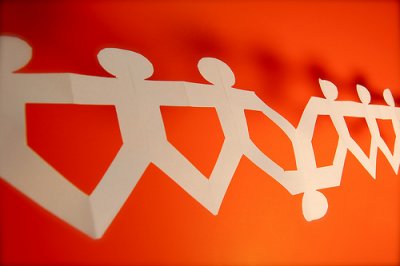Always Feeling Alone In a Crowd? 7 Real Reasons Why

By: Gareth Williams
by Andrea M. Darcy
You have tried all the advice. You joined a gym, attend groups of people who have the same interests as you, make an effort to attend work events. Maybe you even live with a partner.
But you are feeling more alone than ever. How is it possible?
[Feel like the pit of loneliness inside is going to eat you alive? Need to talk to someone who understands, fast? Book an online therapy session today at a price you can afford, be talking as soon as tomorrow.]
Why am I feeling so alone all the time?
Deep rooted feelings of loneliness are often nothing to do with the present but everything to do with the past.
Let’s look at possible reasons you feel so alone.
1.You are afraid of real intimacy.
A deep, endless feeling of loneliness happens because we are afraid of intimacy.
We are not talking romantic intimacy here. We are talking about letting others see the real you, complete with your fears and worries, hopes and dreams. This involves being vulnerable. And if you have a fear of intimacy, just reading that would have given you anxiety.
2. You have no idea how to connect with others.

By: JD Hancock
Not everyone finds connecting to others easy. It’s sadly not something they teach at school, and if you grew up in a family environment where there was connection, you might not have had it modelled to you.
You might, say, have grown up with a parent with social anxiety. Or with older relatives who came from a generation where you keep everything to yourself, and see others as a threat.
If you also struggle with emotions and have been accused of not having any? Read our article, “What is Alexithymia?”.
3. You didn’t get proper attachment.
Attachment theory believes that, in order for a child to grow up into adults who feel safe and comfortable forming bonds with others?
We need to have had a caregiver in the first years of life we could rely on, both to keep us safe, and to love us unconditionally.
If we didn’t get that, if our caregiver was in any way unreliable, hot and cold, or just not well themselves? Then we can end up with attachment issues. This includes anxious attachment, where connecting with others is overwhelming. And avoidant attachment, where we feel safer just not even forming bonds at all. Both leave you lonely.
4. The parenting you received drowned out the real you.
Perhaps your parent(s) did, on the surface, take care of you and love you. But they didn’t let you be yourself. You were given love only if you lived up to certain expectations, or only when your parent was in a good mood.
So you learned to change who you were to things that made your parent happy and gained approval. Over time, this becomes second nature. The real you became so buried that you often, as an adult, question who you are at all.
And here’s the thing about weak self-identity. It’s hard to connect to what doesn’t seem there, or is constantly changing. So your identity issues can mean others find you too hard to understand. You are left feeling desperately alone.
5. You experienced a childhood trauma.

By: Lauri Väin
The one thing that can fracture any ability to feel connected to others is trauma.
This can include things like emotional, physical, and sexual abuse, neglect, or losing a parent or loved one.
Children often blame themselves for trauma. So any childhood trauma can mean you not only feel that connecting to others is dangerous, you feel that you are unworthy of being loved anyway. So you unconsciously push others away.
6. You are addicted to toxic relationships.
Both addictive romantic relationships and toxic friendships leave us lonely. When we are always engaged in power struggles, there is no chance for real connection.
7. You have a personality disorder.
If you not only can’t connect to others, but you find others impossible to understand? And if others in return always call you strange, different, or even belittle you for the ways you think and act? You might have a personality disorder.
A personality disorder means you naturally see the world differently than others. Your brain is geared to think in ways that are outside the norm, leading you to behave in ways that are outside the norm. Which can mean you are always an outsider and feel alone.
What can I do if this is me?
If your feelings of loneliness are from deep rooted past issues, talk therapy can help you process your past experiences and repressed emotions. You can also learn and practice new ways of relating with your therapist. Read our article on “Types of Therapy That Help You with Relationships” for some ideas.
If you are concerned you might have a personality disorder, you might want to see a psychiatrist who can put you through diagnostic tests. Or talk to a therapist. If they think your suspicion might be right, they can then help you find a psychiatrist. In the mean time, they can help you learn to understand others better, and to communicate in ways that others understand.
Ready to reach out for help and stop feeling so alone? Harley Therapy puts you in touch with top therapists in London, and now across the UK via our booking platform. Not in the UK? Book an online therapist and talk from anywhere.
 Andrea M. Darcy is a health and wellbeing writer as well as mentor, trained in person-centred counselling and coaching. Find her on Instagram @am_darcy
Andrea M. Darcy is a health and wellbeing writer as well as mentor, trained in person-centred counselling and coaching. Find her on Instagram @am_darcy




